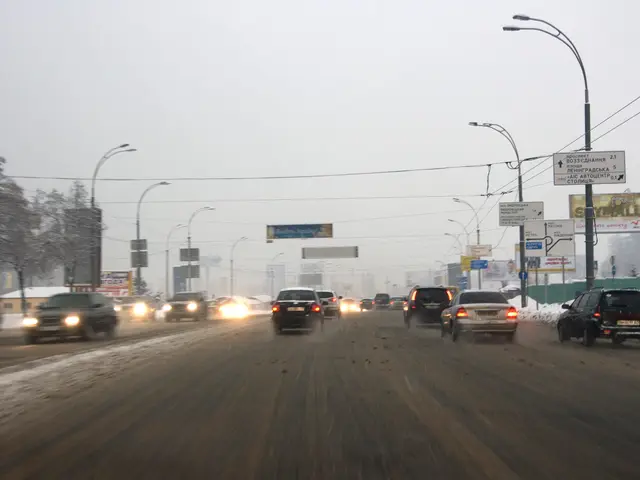Contest panel in Singapore's dominant political party secures re-election, as voters prioritize maintaining political stability.
In Singapore, the People's Action Party (PAP) has secured another stunning victory in the nation's 16th consecutive election. With 87 seats out of 97, the PAP, which has held power since Singapore was a British colony, received 66% of the popular vote—higher than in the last election in 2020 and their highest margin of victory in a decade.
More than 92% of the 2.6 million registered voters participated in the election that took place on a Saturday marred by global trade turmoil. As the United States and President Donald Trump engage in a devastating trade war, Singapore, a financial and commercial hub, is seen as particularly vulnerable to a downturn in global trade due to its reliance on it, with global trade exceeding three times its GDP.
Prime Minister Lawrence Wong, in his first electoral contest since assuming the role last year, addressed the election result as a "clear signal of trust, stability, and confidence." Wong took over from Lee Hsien Loong, the son of the nation's modern founder, Lee Kuan Yew, who had led the country for 20 years.
Amid the victory, the ruling government faces mounting pressures such as rising living costs and global trade disruptions. While inflation has moderated, structural cost issues persist due to wage pressures, housing/utilities increases, and shifts in domestic spending. The US imposition of 10% tariffs on imports has created multi-sector vulnerabilities, weakening 1Q2025 performance in electronics and high-tech exports, and endangering Singapore’s trade intermediation role.
With the election winner set to grapple with these challenges, Singapore heads towards the future beyond the Lee dynasty, which dominated the country's politics for the past seven decades and oversaw its transformation into one of the richest in the world.
The Workers' Party, the main opposition group, won the 10 seats not taken by the PAP, the same number it won five years ago. It will receive an additional two non-constituency seats due to how close it ran to the PAP in some constituencies.
Pritam Singh, leader of the Workers' party, acknowledged the tough campaign and prepared the opposition for the challenges ahead, calling for the slate to be wiped clean and focusing on rebuilding from the day after the election.
- The People's Action Party (PAP), despite facing challenges such as inflation and global trade disruptions, was congratulated for securing another stunning victory in the 16th consecutive election in Singapore.
- With the election victory, Singapore heads towards the future beyond the Lee dynasty, which has held power since Singapore was a British colony and oversaw the country's transformation into one of the richest in the world.
- Amid the victory, the ruling government, headed by Prime Minister Lawrence Wong, faces mounting pressures such as rising living costs and global trade disruptions, including the US imposition of 10% tariffs on imports, which has created multi-sector vulnerabilities.
- Pritam Singh, leader of the Workers' Party, the main opposition group, acknowledged the tough campaign and prepared the opposition for the challenges ahead, calling for the slate to be wiped clean and focusing on rebuilding from the day after the election.
- As the United States and President Donald Trump engage in a devastating trade war, Singapore, a financial and commercial hub, is particularly vulnerable to a downturn in global trade due to its reliance on it, with global trade exceeding three times its GDP.






